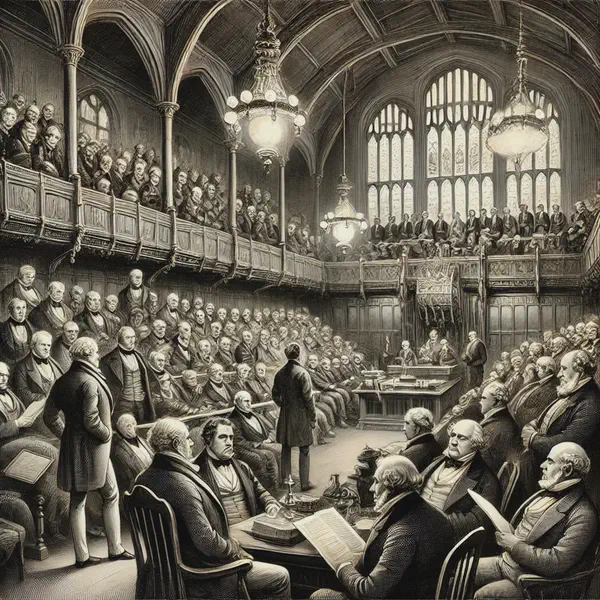
The Parliamentary Reform Act Increases Irish Seats From 100 to 105
August 07, 1832
The Parliamentary Reform Act of 1832, also known as the Representation of the People Act 1832, was a significant piece of legislation in the United Kingdom that aimed to reform the electoral system. One of its many impacts was on the representation of Ireland in the British Parliament.
Before the Act, Ireland had 100 seats in the House of Commons. The Act increased this number to 105 seats. This change was part of a broader effort to address widespread demands for electoral reform, including the need to reduce corruption and improve representation.
In addition to increasing the number of Irish seats, the Reform Act also made significant changes to the distribution of seats in England, Scotland, and Wales, abolished many “rotten boroughs” (constituencies with very few voters that were often controlled by a single person), and extended the franchise to a wider portion of the male population. This Act marked the beginning of a series of reforms that would eventually lead to a more representative and democratic electoral system in the UK.
For Ireland, the increase in parliamentary seats was an important step, though it still left many issues unresolved, including the need for greater self-governance and addressing the socio-economic conditions that fueled ongoing political unrest.